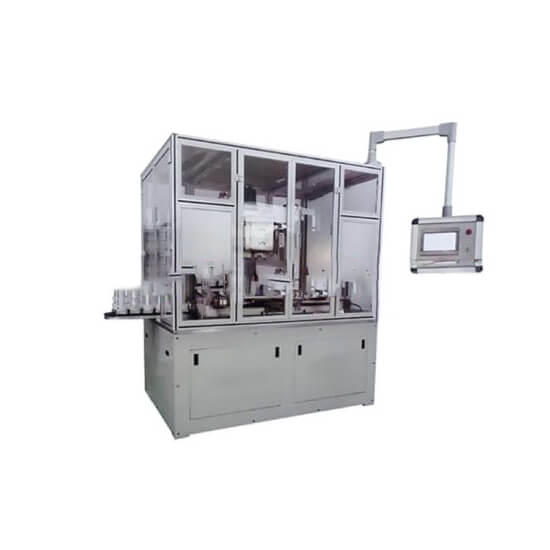Lith Corporation, founded in 1998 by a group of material science doctor from Tsinghua University, has now become the leading manufacturer of battery lab&production equipment. Lith Corporation have production factories in shenzhen and xiamen of China.This allows for the possibility of providing high quality and low-cost precision machines for lab&production equipment,including: roller press, film coater,mixer, high-temperature furnace, glove box,and complete set of equipment for research of rechargeable battery materials. Simple to operate, low cost and commitment to our customers is our priority.
Cell Machine: A Comprehensive Overview
The term "cell machine" can have different meanings depending on the context. It may refer to equipment used in biological research, manufacturing processes, or even fictional concepts. Below, we will explore the most common interpretations of "cell machine."
●1. Cell Machines in Biology and Biotechnology
In the field of biology and biotechnology, a cell machine refers to specialized equipment designed for handling, culturing, analyzing, or manipulating biological cells. These machines are essential tools in laboratories and industrial settings for advancing medical research, drug development, and cellbased therapies.
Types of Cell Machines
1. Cell Culture Systems:
Devices that provide controlled environments (temperature, humidity, CO₂ levels) for growing cells in vitro.
Examples: Incubators, bioreactors, and automated culture systems.
2. Cell Sorting Machines:
Instruments that separate cells based on specific characteristics such as size, type, or surface markers.
Example: Flow cytometers or fluorescenceactivated cell sorters (FACS).
3. Cell Imaging Machines:
Tools used to visualize and analyze cells at high resolution.
Examples: Confocal microscopes, electron microscopes, and livecell imaging systems.
4. Cell Printing Machines:
Equipment used in 3D bioprinting to create tissuelike structures by depositing layers of cells.
Applications: Tissue engineering, organoids, and regenerative medicine.
5. Cell Analysis Machines:
Devices that quantify and characterize cellular properties.
Examples: PCR machines, qPCR systems, and nextgeneration sequencing platforms.
6. Cell Manipulation Machines:
Tools that allow researchers to physically manipulate cells, such as patchclamp devices for electrophysiology studies or micromanipulators for singlecell experiments.
Applications
Medical Research: Understanding cell behavior, gene expression, and disease mechanisms.
Drug Development: Testing drug efficacy and toxicity on cultured cells.
Regenerative Medicine: Engineering tissues and organs using stem cells.
Industrial Biotechnology: Producing biofuels, enzymes, and pharmaceuticals through cellbased processes.
●2. Cell Machines in Manufacturing
In manufacturing, the term "cell machine" often refers to cellular manufacturing systems, which are production setups organized into workcells. These systems are designed to optimize efficiency, flexibility, and productivity.
What Is Cellular Manufacturing?
Cellular manufacturing groups machines and workstations into "cells," where each cell is dedicated to producing a specific family of products or components. This approach minimizes material handling, reduces setup times, and improves workflow.
Components of a Cell Machine
Machines: CNC machines, lathes, mills, or robots.
Material Handling Systems: Conveyors, automated guided vehicles (AGVs), or robotic arms.
Control Systems: Software for scheduling, monitoring, and automating operations.
Battery Machine
Advantages
Increased efficiency and reduced waste.
Improved flexibility to adapt to changing demands.
Enhanced quality control and faster production cycles.
●3. Cell Machines in Fictional Contexts
In science fiction or speculative fiction, a cell machine might refer to advanced technology capable of interacting with or altering biological cells at a molecular level. These machines could serve various purposes, such as:
1. Healing or Regeneration:
Devices that repair damaged tissues or organs by reprogramming or replacing cells.
2. Enhancement:
Machines that upgrade human capabilities by modifying genetic material or integrating cybernetic components.
3. Weaponry:
Tools that target and destroy specific types of cells, such as cancer cells or pathogens.
4. Data Storage:
Hypothetical systems that encode information within cellular DNA for longterm storage.
Examples of fictional cell machines include nanobots, bioengineering devices, or futuristic medical implants.
●4. Cell Machines in Robotics
In robotics, cell machines may refer to modular robotic systems composed of small, autonomous units called "cells." Each cell can perform simple tasks but collaborates with others to achieve complex objectives. These systems are inspired by biological cells and their ability to selforganize and adapt.
Characteristics
Modularity: Cells can be added or removed as needed.
Autonomy: Individual cells operate independently but communicate with others.
Scalability: Systems can grow or shrink depending on the task requirements.
Applications
Disaster response: Deploying cell machines to navigate debris or locate survivors.
Space exploration: Using cell robots to construct habitats or repair equipment on other planets.
Medical interventions: Miniature cell machines navigating the human body for targeted treatments.
●Which Type of Cell Machine Interests You?
Whether you're exploring biological applications, manufacturing innovations, fictional technologies, or robotic systems, the concept of a "cell machine" spans multiple disciplines and offers exciting possibilities.
Let me know which aspect resonates with you, and I’d be happy to dive deeper! What excites you most about the idea of a cell machine? Share your thoughts below!


 +86 13174506016
+86 13174506016 Louis@lithmachine.com
Louis@lithmachine.com +86 18559646958
+86 18559646958
 18659217588
18659217588